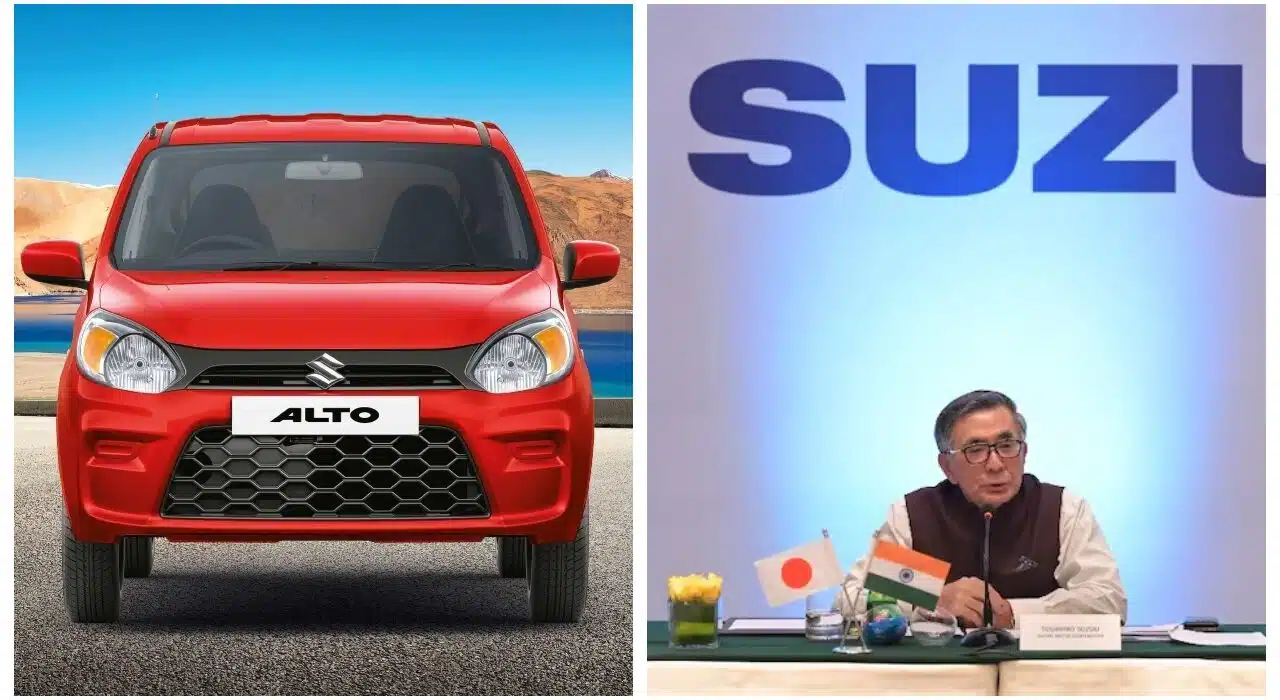India will play a pivotal role in the expansion of Maruti Suzuki on a global level as India will emerge as an export hub for Maruti Suzuki. Toshihiro Suzuki, Representative Director and President at Suzuki Motor Corporation, recently announced the significance of India in the production and export of electric vehicles during a conference while gearing up to launch the company’s first electric vehicle, e-Vitaara, on January 17 at the Bharat Mobility Global Expo.
“India will be a global production hub for daily EV manufacturing. We will export the e-Vitaara from India to Europe and Japan, leveraging the country’s scale and expertise,” Suzuki said in a media roundtable. He added that India’s role as an export hub will not be restricted to EVs but will be extended to hybrids and the company’s existing vehicle portfolio.
Maruti Suzuki’s EV Push and Future Strategy
Maruti Suzuki EV Push and Future Strategy to Become Export Hub
The e-Vitaara is Maruti Suzuki’s entry into the electric vehicle market, which is expanding rapidly in the SUV segment. The company will begin with SUVs, but Suzuki said it intends to move into the compact EV space, and it will only do so when the manufacturing techniques of EVs are perfected to meet small car demand
“Compact EVs are my personal belief. Once we have the skills mastered, we will be shifting towards compact EVs,” Suzuki explained.
He said customer feedback on the e-Vitaara would decide Maruti Suzuki’s future in electric vehicle production.
“Maruti Suzuki wants to take the feedback and hone its skill set for electric vehicle manufacturing,” he said.
Small Cars and Multi-Powertrain Technology
Despite challenges, Suzuki said there was good fortune in the near future for his small car venture. He further pointed out potential demand from nearly a billion people who will look to change two-wheelers for affordable four-wheeler four-wheelers.
Furthermore, Maruti Suzuki is also aligned with a multi-powertrain strategy, balancing EVs, hybrids, and other technologies to meet the diverse needs of markets. Although the company had phased out diesel powertrains in 2020, Suzuki said diesel could make a comeback in some markets around the world.
Also, see: India’s top selling Maruti Suzuki fails to earn country’s no. 1 car badge first time in 40 years

1 Comment